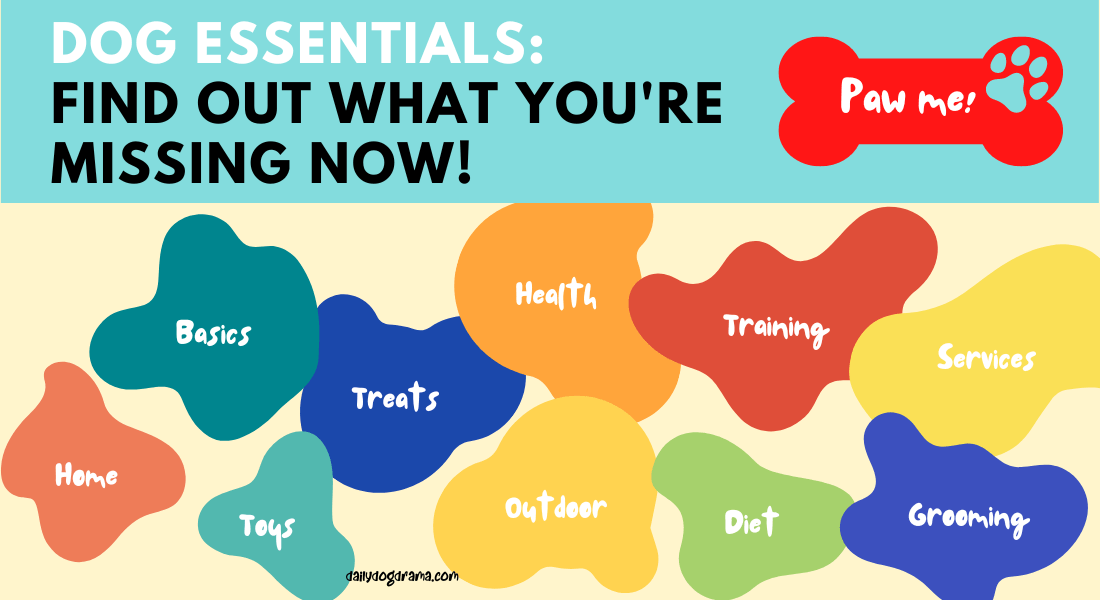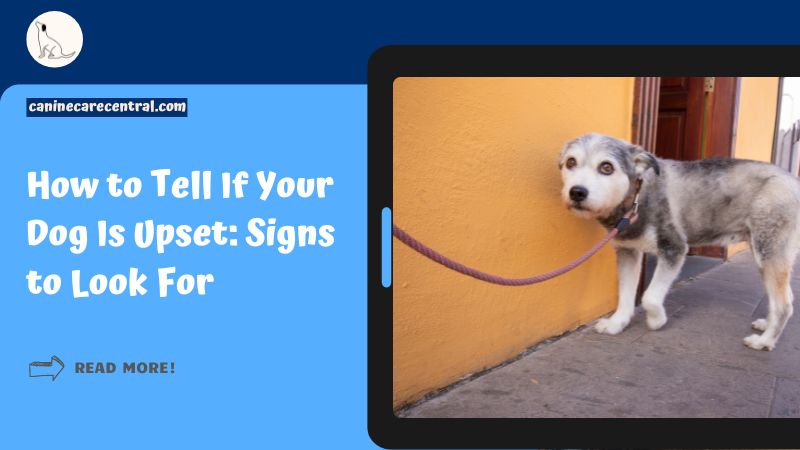Do you know what DOG ESSENTIALS you are missing out? Find out now!
Zack Keithy, our author, is a certified veterinarian technician (UC Blue Ash) for over 6 years (contact him here). The articles written here are based on his expertise and experience, combined with a review by our expert vet reviewers including Dr M. Tarantino. Learn more about us here.
Has your dog recently gone on a trip to the kennel, or with a pet sitter?
If so, you may be experiencing an unexpected consequence of their time away. It’s possible that they’re now peeing in the house, which is obviously something you want to stop as soon as possible.
Your dog peeing in the house after boarding is likely due to anxiety from being away from you and having to deal with a sudden change of environment. In most cases, this should go away in a couple of days.
Tip: Don’t confuse it with your puppy not peeing at night though!
Fortunately, we have some ideas about why this may be happening and how to solve it!
Medical Questions? Talk to a Veterinarian 24/7.
Connect one-on-one with a licensed vet who will answer your questions in minutes.
*Article may contain affiliate links to retailers like Amazon and Chewy. Learn more on our disclosure page.
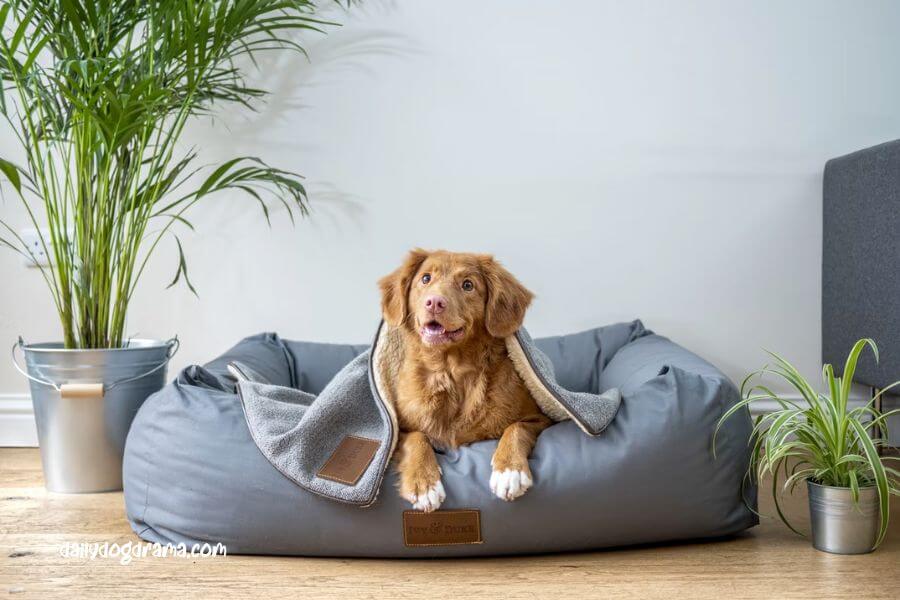
Reasons why your dog might pee in the house after staying in a kennel or with a pet sitter
I think it can be quite disconcerting to see your dog’s behavior change after a short time away at a boarding facility or pet sitter.
No one wants to have a “different” dog after picking them up.
What are the likely scenarios that are causing this to happen?
The main factor is down to anxiety caused by separation from its owner.
This could easily be said of humans too, particularly young children.
Change that is too fast and unfamiliar will cause a lot of uncertainty, even in dogs!
It could also be behavioral.
If your dog has not been crate trained and is left alone while you are at work or out running errands, it could be that he is confused and feels anxious in a confined space.
If this is the case, try leaving it in its crate when you leave home and take him out again as soon as possible when you get back.
Doggy says, you might like this too: Dog Goes Crazy in The Crate? [6 Solutions]
Here’s a quick look at the most common factors affecting your dog:
- Your dog may be stressed by the new environment
- Your dog may be stressed by the new people
- Your dog may be stressed by the new pets
- Your dog may be stressed by the new smells
- Your dog may be stressed by the new sounds, such as traffic and lawnmowers going off outside, or other dogs barking in neighboring apartments or houses
Doggy says, check this out too: Why is my puppy sleeping on the pee tray?
New environment

Some dogs can be very sensitive to change, and they may have trouble adjusting to a new environment.
If your dog is one of these types of dogs, you should give him or her time to adjust.
It’s important to remember that your dog will get used to their new surroundings eventually, but it may take some time for them to fully settle in.
New people
Your dog may be stressed by the new people.
If so, it is important to make sure your pet has positive associations with the boarding and kennel staff.
Introduce your dog to them gradually over a couple of visits so that it becomes accustomed to them without being stressed.
This will make them more comfortable when you drop it off at the kennel and when you pick him up after his stay.
Doggy says, consider reading this too: What To Do if a Puppy Poops 2 Hours After Eating?
Does your dog have a peeing problem?
Live Odor Free is a tested and proven tool that will help you solve this problem once and for all.
New pets
It’s possible your dog is stressed by the new pets.
Some dogs do not like being around other dogs and will show their discomfort by urinating or defecating in the house.
If this is the case, you should consider changing the boarding situation or finding new kennels for your dog when he needs to be boarded.
Dogs that have been boarded or left at a kennel will often “relive” their experience by urinating in their owner’s home upon return.
This is a sign of stress but it should go away quickly soon after returning home.
Doggy says, you may like this too: German Shorthaired Pointer Peeing in the House [What to do]
New smells
This is a very common behavior in dogs who have been boarded at a kennel or vet clinic.
The smell of other animals and a new “home” can make them nervous in their own home, even though they don’t seem bothered by it at the boarding facility.
Dogs have a keen sense of smell, and they can be easily overwhelmed by strange odors.
The new smells may make him feel insecure about his territory and lead him to mark his territory with urine as a way to claim his turf as his own again.
On this topic, you might want to find out more about belly bands for dogs.
New sounds
Imagine you are brought to a new place to stay for an extended period of time, and your regular peacefulness is now replaced by a dozen other pets each making strange noises or the constant buzzing, whirring, and beeping of machines.
All of these will add a high level of stress to your dog especially if it has never been exposed to such an environment before.
As you might know, dogs have a very good sense of hearing and are definitely much more sensitive to sound changes than us humans.
Doggy says, you might like this too: Chihuahua Peeing in the House [What Now?]
Boredom
Dogs are very smart and if they are not getting enough mental stimulation from their owners, they can become bored and destructive.
This can lead to misbehaving and even urinating in the house because they’re looking for something to do.
Doggy says, read this too: What if Your Dog Ate a Pee Pad? 10 Solutions
What you can do to prevent this from happening?
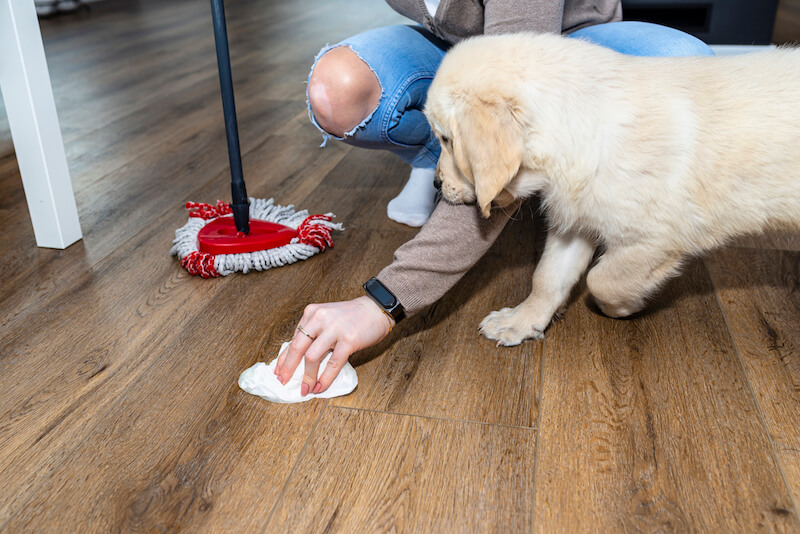
The likelihood of this behavior persisting is quite low, as they usually go away after a few days back in your loving arms.
That said, there are some ways to reduce the impact of sending your dog away.
I’m sure all dog owners wish to be there for their pets at all times, but sometimes it might not be possible.
The first thing you need to do if your dog is peeing in the house after boarding is to rule out medical issues.
If your dog has a urinary tract infection, diabetes, or another health problem, this would certainly explain why he’s peeing in the house.
If your dog doesn’t have any medical issues and still pees in the house after boarding, then you can try the following tips.
Doggy says, read this too: Potty Training Regression After Spaying/Neutering [Now What?]
1. Walk
Make sure you take your pet for a walk as soon as possible after he comes back from his stay at the boarding facility.
This is one of the best tips to train your pet to not pee inside your house and it is especially helpful if your dog has never been boarded before.
Just keep an eye on him/her and not let it develop bad habits such as peeing on the deck.
2. Limit the amount of time in the boarding facility
If possible, you should try to limit the amount of time your dog spends at the facility.
No matter how good the place is, it is after all not their home, and certainly not somewhere it should get used to.
3. Getting someone familiar to help
Instead of sending your dog to a boarding facility, try to find a friend or family member to help.
The added benefit is that you can have a longer period of time to let your dog become familiar with this person and give it important social skills in the process.
This person does not necessarily have to stay in your home, but rather, pop by for an hour or two each day to play with it and take it out.
During the hours when there is no one at home, having a pet camera will be really useful in letting them hear a familiar voice, and not forgetting the ability to feed it some treats remotely too!
I personally love the Petcube Bites 2 Lite Interactive Camera. Super easy to set up and use and it works!
4. Get hired help
If you cannot find a friend or family to help you out during the time you are away, or there are days when they are unavailable, you should consider hiring someone to come in.
A dog sitter could be a good option if you have some experience with them and it reduces the stress level of your dog since it can still stay in a familiar environment.
Doggy says, read this too: Beagle Peeing in the House: Stop It in Its Tracks
5. Your attitude
Pick up any messes immediately and clean the area so that it is safe for both humans and pets.
This will prevent him from getting into those areas again and urinating there again later on.
Don’t punish or reprimand your dog for peeing or pooping inside — instead, give it lots of praise when it eliminates outside or in its designated area.
6. Keep food bowl away
Make sure that you don’t leave any food or water out all night long when he comes back home from his stay at the boarding facility so that he doesn’t try to go potty there after waking up early in the morning before you wake up yourself!
7. Re-establish routine
During its stay at the boarding facility, your dog will have to follow a new timetable that is entirely different from what it’s used to.
When you bring it back, you need to start establishing a routine for them. This is really important as dogs are creatures of habit.
Doggy says, you might like this too: Why do Chihuahuas burrow?
8. Exercise
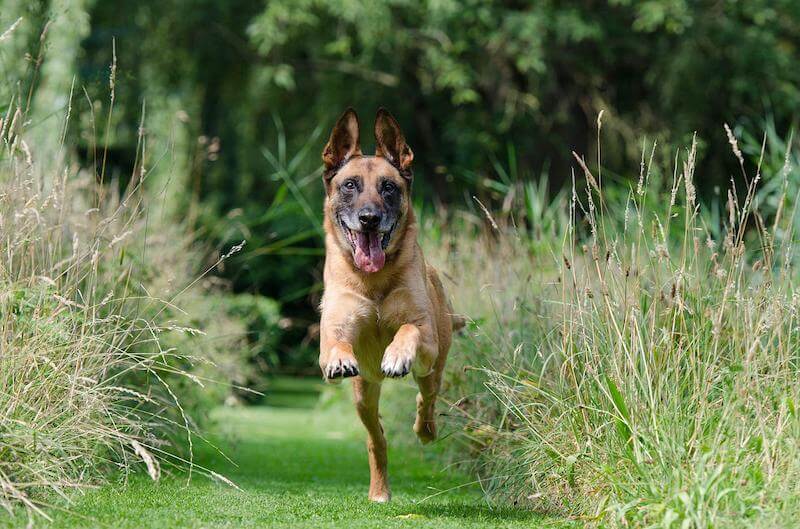
Give him plenty of exercise before taking him to its kennel.
Exercise helps relieve stress and anxiety in dogs — both things that can lead to poor behavior like urinating in the house.
If possible, give your dog lots of exercise before taking it to the boarding facility and do the same when it’s back home.
Doggy says, consider reading this too: Boston Terrier Peeing in the House? [Problem Solved]
9. Retraining
If you have left your dog at a boarding facility for a long period of time, it might have forgotten or adapted to a new way to relieve itself.
Especially for senior dogs, there’s also a potential it has doggie dementia, which means she’s forgetful and needs to be reminded to go outside to do their business.
Keep an eye on your dog while you’re at home so that you can take it out as soon as it starts showing signs of needing to go outside.
10. Give it time
This might seem obvious but I have come across dog owners that get very frustrated or overly concerned when something like this happens.
They start getting nervous too and might even play the blame game, which is very unhealthy.
Your dog can pick up on all these signals and may feel that it has done something wrong, so don’t be that person!
Instead, shower your dog with lots of love and attention as usual and give it some time to acclimatize.
How can you help your dog after boarding?
Boarding can be a stressful experience for both the dog and you the owner.
The difference is that you have much better control over your anxieties and you can help your dog get over this period of time much better.
Get back into a routine quickly
As mentioned above, dogs benefit from routine and familiarity because they feel more secure when they know what to expect.
As a result, undesired behaviors like extreme clinginess, peeing, and even scratching or gnawing can be eliminated when she first arrives home.
Don’t overreact about the time you spent apart. Instead, simply resume your normal routine of walking, feeding, and any other activities you share.
Anticipate an increase in appetite
Sure, your boarding facility has nice food for your dog too, but due to the stress and anxiety it experiences, it might not have a healthy appetite during the stay.
When it comes home, you might notice that it suddenly eats more than usual, which is pretty normal.
Just keep a close eye and not overfeed it, and ensure a healthy amount of exercise to balance that out.
Watch out for severe changes in behavior
Think that you have a brand new dog now that it’s back?
Some dogs experience a change of behavior after staying in a boarding kennel.
This could be its way of reacting to change, and also, it could have picked up on some undesirable habits from other dogs.
You should also pay close attention to the first few days home to things like diarrhea or throwing up.
This can be considered somewhat common as the food might not be a good match, but if it lasts beyond a day or two, you will need to consult the vet.
Hey there, sorry to interrupt but I wanted to tell you about an online vet service I’ve been using for years.
An in-person visit with one is great, but it’s not always an option.
Now, thanks to technology, you can speak to one without leaving your home.
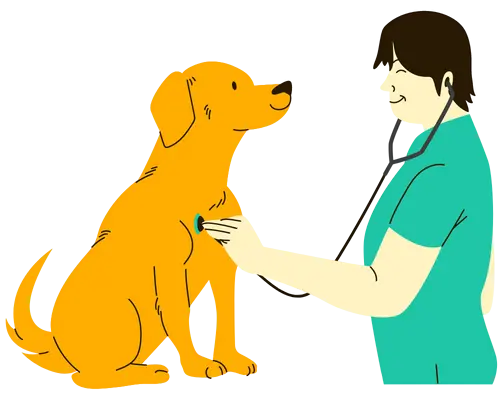
Got something to ask a vet?
Talk to one anytime, 24/7.
* Don’t use this service for emergencies.
Alternatively, a vet can come out to you instead (exclusive to our readers: use THEVETS15 for 15% off).
SCHEDULE AN APPOINTMENT HEREThank you. The rest of the article continues below.
Frequently asked questions (FAQs)
Why is my dog peeing so much after being boarded?
You know your dog best, and if you see excessive peeing that persists for many days after coming home, you should consult your vet as there might be a medical issue.
Can dogs be traumatized after boarding?
Yes, dogs can be traumatized after boarding. This is due to a number of reasons such as stress, negative treatment from the staff, bullying by other animals, or being cooped up in a kennel for too long.
How long does it take for a dog to recover from boarding?
One or two days should be sufficient for your dog to return to normal, but if they are sick from their stay, this could be prolonged depending on the illness. For example, a kennel cough might last up to 3 or 4 weeks if not treated quickly.
In Conclusion: Dog Peeing in House After Boarding
The good news is that, depending on the cause of your dog’s peeing in the house after boarding, this behavior will likely go away soon.
If you want to speed up the process, follow the tips above to help him or her get back on track with their potty habits.
If your dog is still peeing in the house after a week or two, you may want to consider visiting the vet or consulting with a professional dog trainer.
You’ve made it to the end, but I hope it’s not the end of our journey. We want to hear your voice! Share your thoughts, problems, suggestions, or anything related to your dog in the comments section. And don’t forget to join our newsletter today too.

